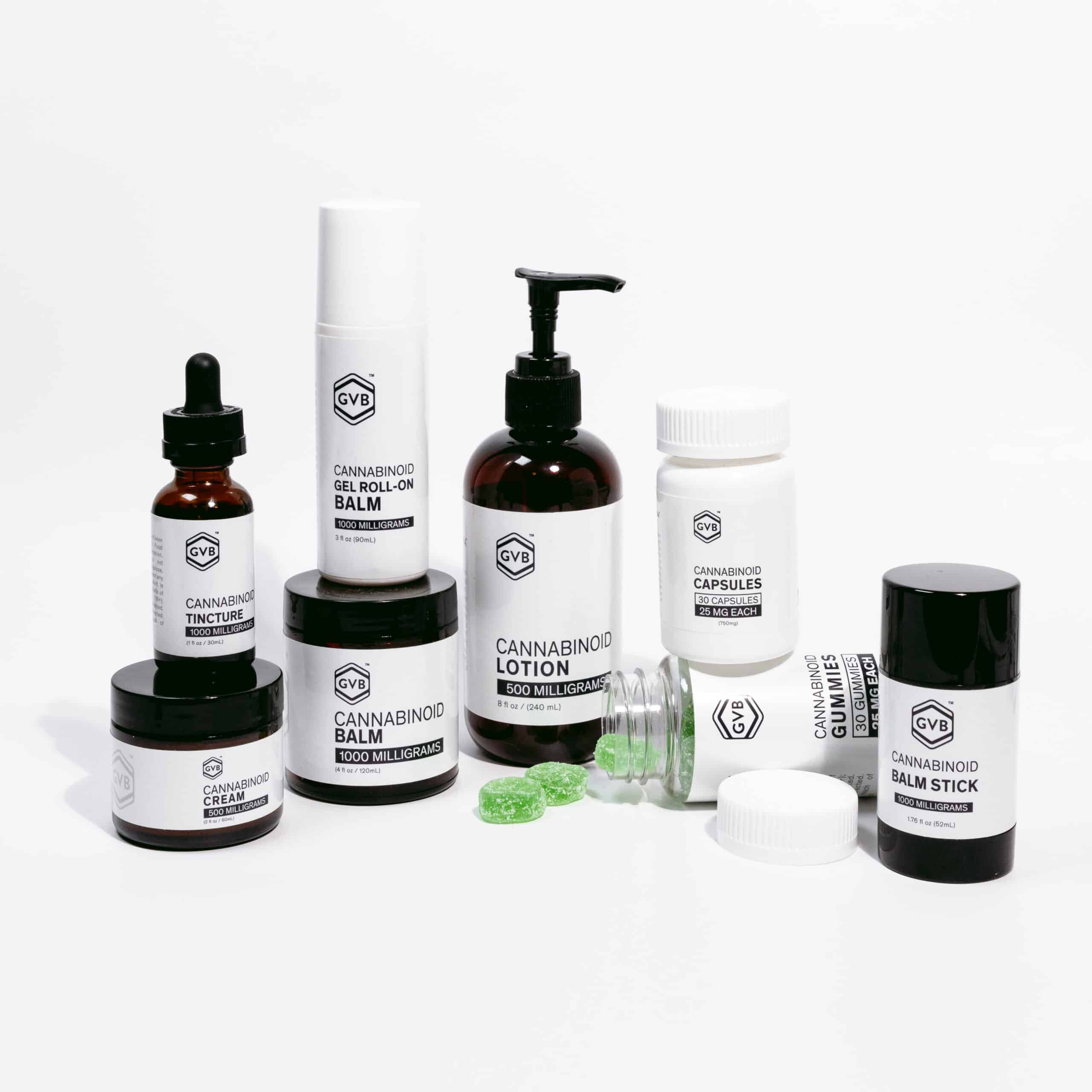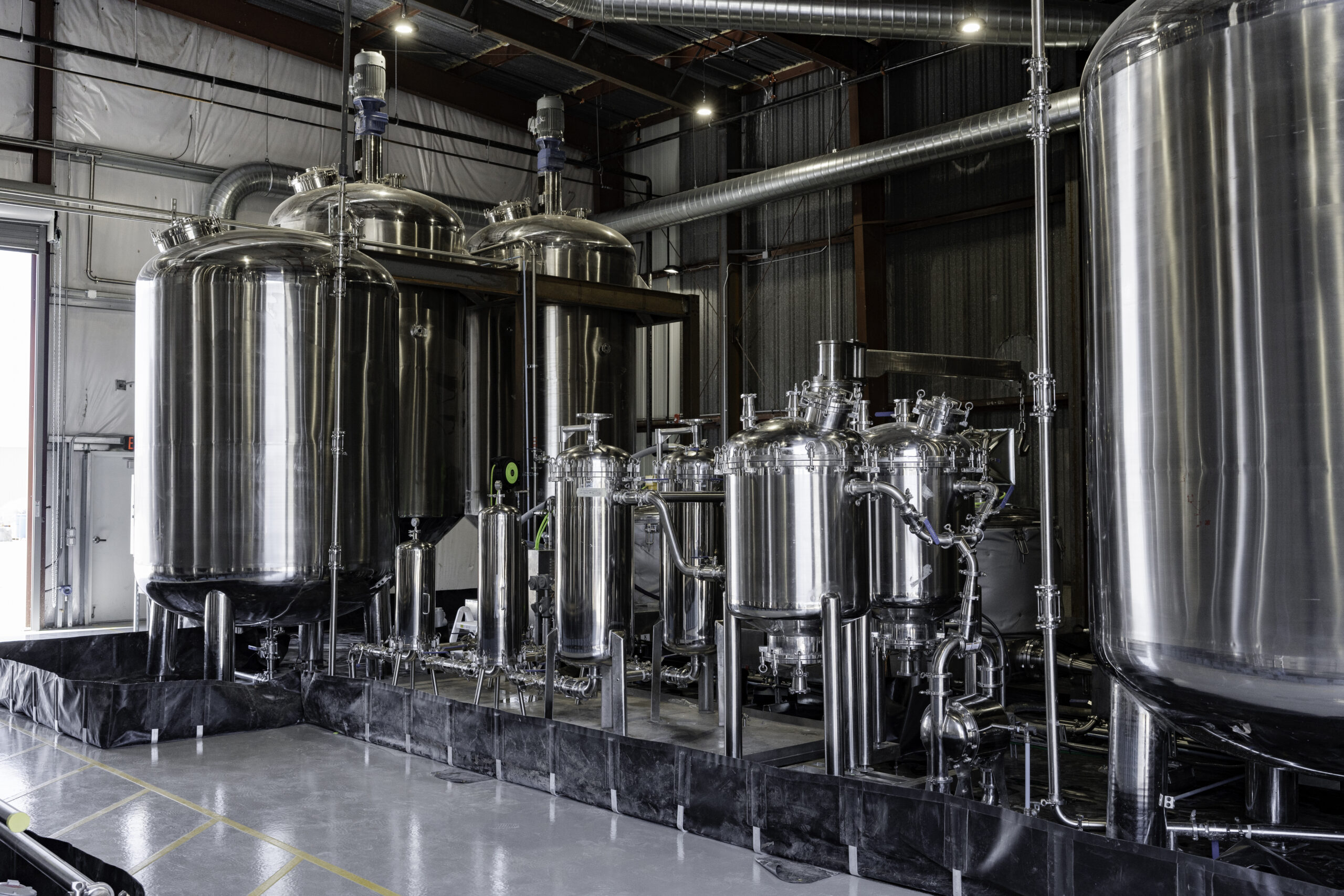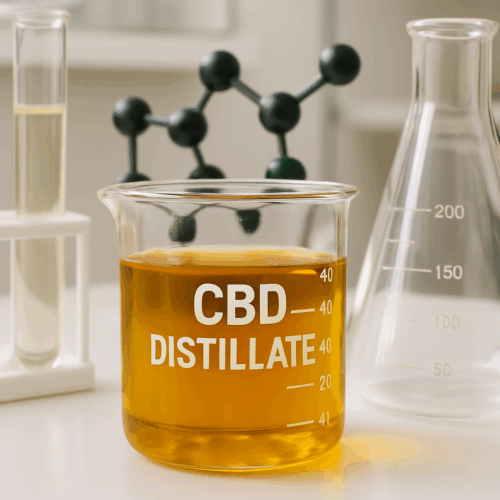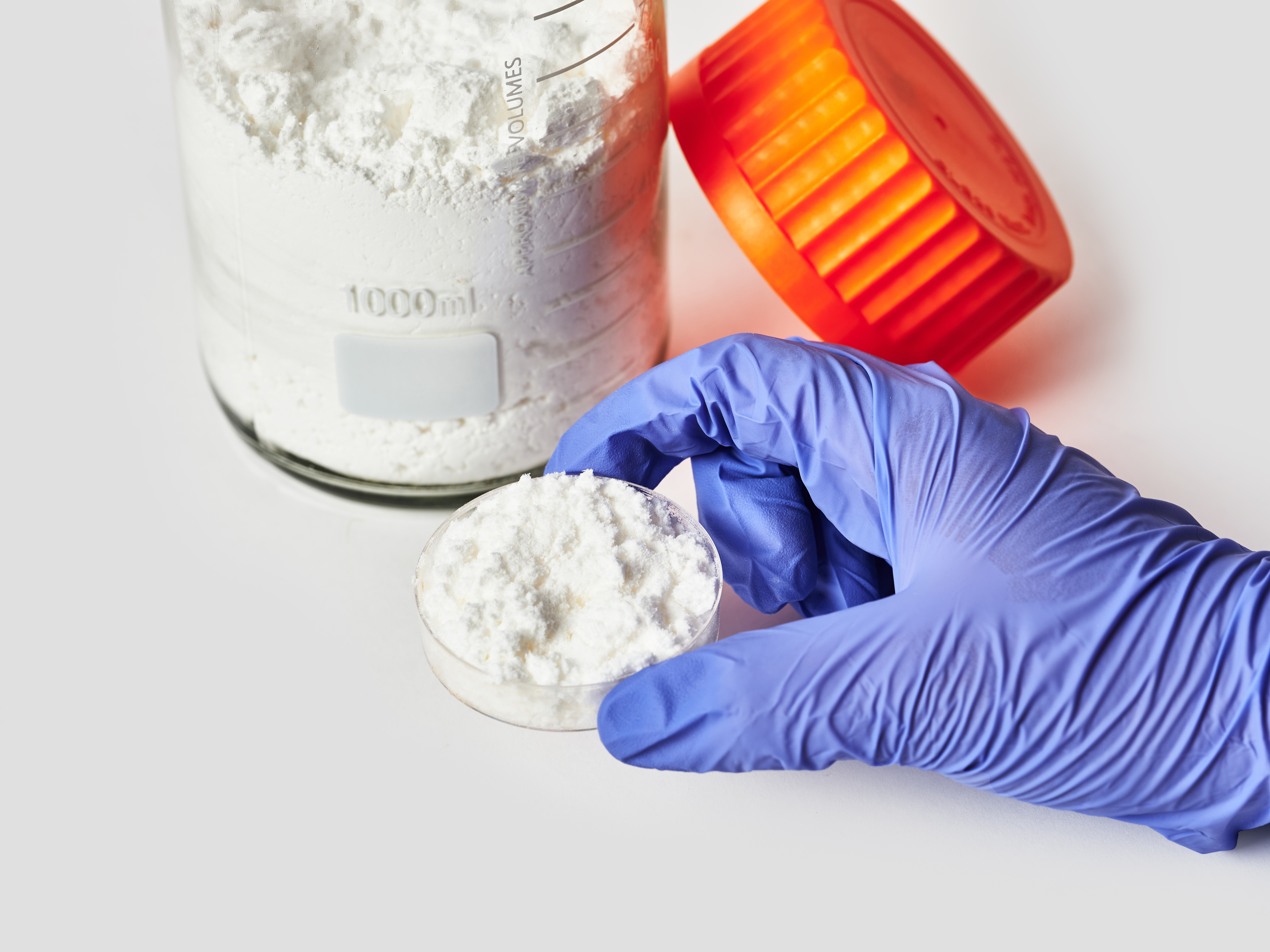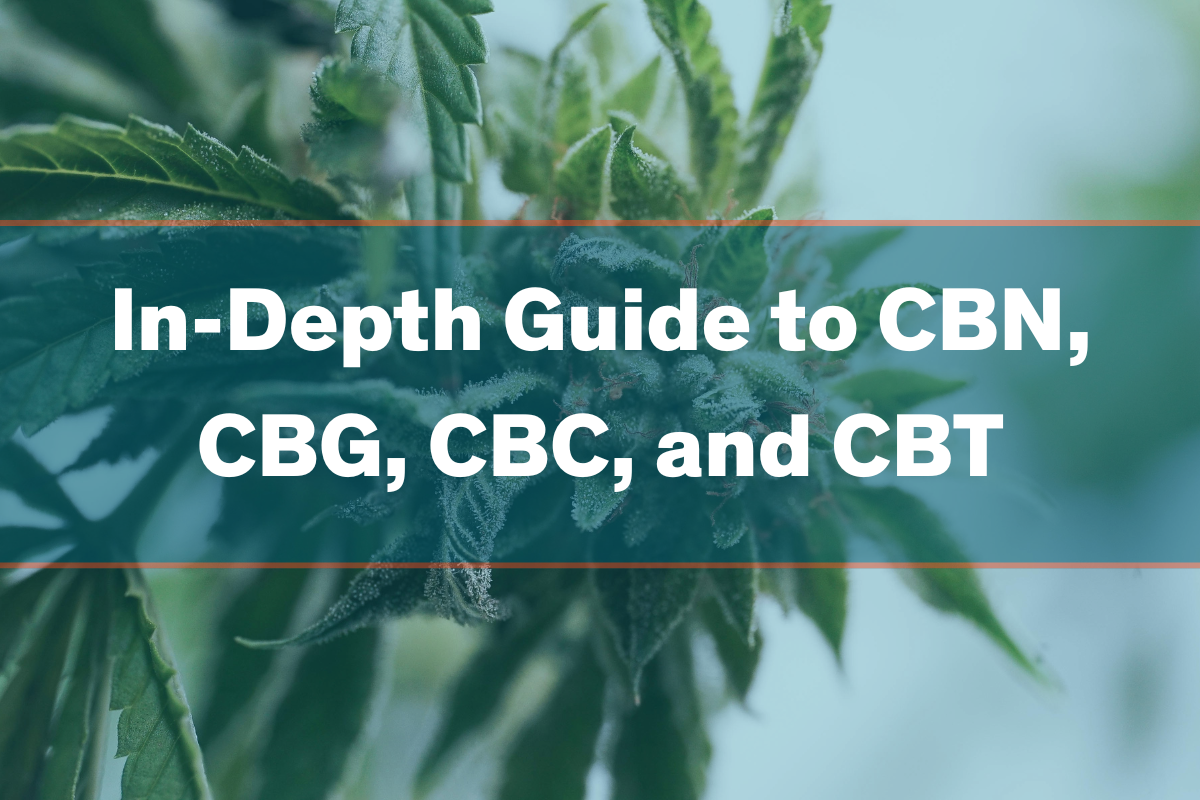Entrepreneurs in the CBD space have conflicting views on the FDA. While this federal agency will ultimately be responsible for ushering in the era of mainstream CBD commerce, the FDA has seemingly made life harder for many domestic hemp producers and brands.
While it’s true that the FDA has cracked down on certain companies for violating laws that prohibit unproven medical claims, it’s not as if this government agency has a negative overall position on CBD.¹ As new insider information from GVB’s own Drew Spiegel suggests, the FDA may have a remarkably positive perspective toward CBD and is simply hamstrung by the existing state of pharmaceutical law.
In this critical update on the current status of United States CBD regulation, learn how Congress, the White House, and even the FDA itself are actively lobbying for comprehensive regulatory changes that will classify CBD as a dietary supplement during the first half of next year. It turns out that the FDA is friendlier toward the CBD industry than anyone expected, and we’ll explain why as we continue.
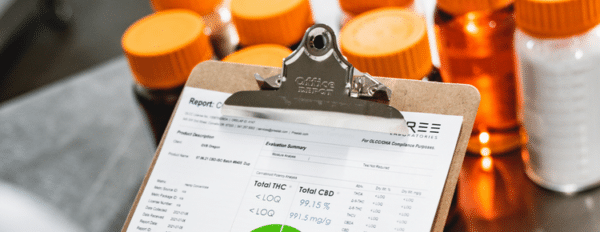
What the FDA has said about CBD so far
Over the last few years, CBD companies have developed an unfortunate habit of receiving the latest FDA updates with a mixture of resentment and trepidation. At multiple points starting in early 2017, the FDA has released communications that seemingly put the CBD industry in jeopardy by threatening non-complying companies with legal action, including injunction and/or seizure of product.² In some cases, uninitiated pundits and consumers have spread these announcements far and wide as proof that the “walls are closing in” on the unregulated, and therefore apparently dangerous, domestic hemp industry.
What many commentators have failed to recognize, however, is that the FDA is inherently a regulatory agency. It does not pass laws, and it only makes policies based on its interpretation of laws that Congress has devised. If the FDA has come across as being critical or antagonistic toward the CBD industry, it is only because existing CBD laws are still not the friendliest. If we look beyond the ominous warning letters that the FDA continues to send to CBD companies that violate regulations, it’s clear to see that this federal agency is actually remarkably hopeful regarding the potential therapeutic value that CBD may offer.
The FDA is not anti-CBD
Soon after the 2018 Farm Bill was signed into law, then-FDA commissioner Scott Gottlieb released a statement reiterating how important it is to fully research active components of Cannabis sativa. Later in 2019, the FDA held a public hearing during which hemp industry stakeholders provided valuable information regarding the safety and potential utility of CBD and other cannabis constituents.
As if this point wasn’t already clear enough, the FDA took the time in July of 2019 to release a statement confirming how committed this federal agency was to producing reliable, science-oriented CBD policy. In March of this year, the FDA released an update on its efforts to better understand the therapeutic potential of CBD, and in July, this government agency paved the way toward a more streamlined approach to CBD clinical studies.
In September, the FDA announced that it would soon produce guidance that will make it easier to approve CBD-based prescription medications. The FDA also recently provided the White House with a proposal regarding CBD product enforcement, and a recent House Spending bill appropriated funding for CBD regulation. Contrary to appearances, the FDA is actually moving on CBD as quickly as possible while its resources remain significantly limited due to the ongoing pandemic.
D.C. rumors and projections
With the FDA siding with the hemp industry and apparently taking every action necessary to bring CBD into the mainstream, what are the next developments that stakeholders can expect to emerge from the Washington D.C. regulatory apparatus? There’s only so much you can learn from official FDA statements, and for hands-on information on the current status of federal CBD regulation efforts, we turn to GVB Biopharma COO Drew Spiegel, who has extensive connections with lobbyists and other contacts within the Washington establishment.
Reading between the lines
The FDA’s new commissioner, Dr. Stephen Hahn, recently admitted that it would be a “fool’s errand” to say that you can’t use CBD products. According to Hahn, the FDA has “to be open to the fact that there might be some value to these products and certainly Americans think that’s the case.” He went on to reiterate that it’s the FDA’s role to provide consumers with “information to make the right decisions.”³
This statement should put an end to paranoid speculation that the FDA intends to send its very limited force of federal agents to forcibly seize every CBD product and apparatus of CBD suppliers in the USA. Clearly, the FDA has no intention of stopping the CBD industry from functioning, and this agency only wants to make it easier and safer for consumers to access high-quality CBD products.
After multiple years of ceaseless examination, it has apparently become clear to the FDA that CBD has therapeutic potential, and it should now also be clear to hemp industry stakeholders that the FDA intends to take significant action regarding the CBD industry as soon as is reasonably possible. Except for CBD producers and brands that are already in violation of federal laws and FDA policies regarding hemp commerce, these upcoming regulatory changes should be cause for celebration, not dread.
The FDA’s hands are tied by the FD&C Act
Washington insiders indicated to Drew that the FDA is currently highly frustrated by the limits imposed by Title 21 of the United States Code, better known as the Food, Drug, and Cosmetic Act (FD&C Act). The FD&C Act stipulates that a substance currently used in a pharmaceutical drug cannot simultaneously be sold as a dietary supplement. Since the FDA has already approved Epidiolex, a CBD-based prescription drug, for certain types of epilepsy, it is unable to start approving CBD products as dietary supplements as much as it may want to start taking this step.
The opioid crisis looms large
Things are looking positive for the federal CBD situation on a number of fronts. As a result of its extensive investigation into the potential benefits of CBD, it appears that the FDA has been especially impressed by research into the potential anti-addictive properties of this non-intoxicating cannabinoid. This government agency seems to believe that CBD could play a pivotal role in halting the ongoing opioid crisis, which has only accelerated during the COVID-19 crisis.
Congress is pressuring the FDA
We were informed that certain prominent members of Congress are putting significant pressure on the FDA to move forward with the CBD approval process. This initiative has received bipartisan support, but the FDA is pushing back by saying that it cannot take definitive action until Congress passes new legislation modifying the FD&C Act to allow CBD to be sold as a dietary supplement even though Epidiolex is also currently on the market.
The White House is pressuring the FDA
The FDA is also receiving pressure to approve CBD as a dietary supplement from the White House, say Drew’s D.C. insiders. Under the Trump administration, the Executive Branch has engaged in an unprecedented mobilization to address the opioid crisis, which claims more than 70,000 lives every year and leaves countless more Americans suffering from addiction and other opioid-related conditions. Upon receiving reports that CBD could be instrumental in addressing the opioid crisis, the White House is apparently very keen to normalize the CBD industry’s position within the American economy.
The election is causing uncertainty
With less than a week remaining until the first election conducted during a pandemic since 1918, unprecedented levels of mail-in voting may delay the final results of the presidential election by several weeks. The Commissioner of Food and Drugs is appointed by the President and confirmed by the Senate, and it’s entirely possible that a Republican nominee could face a Democratic Senate or vice versa. While we still believe the FDA will provide new rules on CBD during Q1 or Q2 of 2021, it would be unsurprising if this long-awaited action were delayed until Q3 if questions regarding the outcome of the election result in a lengthy nomination and confirmation process for the new FDA commissioner.
CBD could be classified as a dietary supplement as early as Q1 2021
Prior to the COVID-19 pandemic, industry insiders firmly expected comprehensive CBD regulation to arrive no later than Q3 2020. Since resources have been reallocated to respond to the novel coronavirus, however, the inherent issues surrounding CBD regulation were temporarily pushed to the side. In recent weeks, however, there has been a sense throughout Washington that hemp industry regulation has again begun receiving significant attention, and Drew’s insiders report a firm consensus that the FDA’s overhaul of CBD regulation will arrive within the first two financial quarters of 2021.

The FDA has two potential approaches
Unfortunately, within the first quarter of President Biden’s administration, Biden handed the CBD industry another setback by pulling six FDA guidances and rules from its policy review. Nonetheless, the FDA continues to support the CBD industry stating that safety standards are long overdue.4 While the FDA would clearly like to move on CBD earlier rather than later, it’s important to remember a simple, important fact. Although the FDA’s regulation statements or “final rules” may appear similar to decrees of law, this agency’s only role is to interpret the laws that Congress has provided to deliver rulings on consumer products.
At this stage, the FDA can either wait for Congress to rewrite the FD&C Act to allow CBD dietary supplements to be sold at the same time as Epidiolex, or they can take decisive action to subvert the FD&C act and regulate CBD as a dietary supplement without the approval of Congress. While the details remain unclear, Drew’s insiders have reported that the FDA may have an option at its disposal that would allow CBD to enter the market as a dietary supplement following the production of an incredibly detailed toxicology report definitively proving its safety.
The timeline is the same either way
Regardless of which approach the FDA takes, Washington is convinced that this government agency will fundamentally redirect the national conversation surrounding CBD during the first half of next year. The FDA is, apparently, fully onboard with the CBD movement, and Commissioner Hahn wants to normalize the CBD industry as soon as possible. With the FD&C Act the only significant hurdle remaining in place, the FDA is a single step away from opening the floodgates and definitively liberating CBD from its stifling regulatory gray area.
How to prepare for the coming changes
At long last, a complete rewrite of existing CBD regulations is just around the corner. Now that CBD is finally about to get the recognition it deserves, what steps should you take to position yourself within the transformed domestic hemp economy?
Start thinking mainstream
By this time next year, CBD will no longer be a fringe substance with no official designation. Instead, CBD manufacturers will be encouraged to petition the FDA to classify their products as dietary supplements. CBD products without dietary supplement classification will be subject to punitive action, and to be approved, CBD products and manufacturing facilities will need to be extensively examined by the FDA.
Choose forward-thinking suppliers
As a result, now is probably not the right time to strike out on your own and build an FDA-worthy CBD production lab from scratch. Certain bulk cannabinoid and white label cannabinoid product manufacturers, such as GVB Biopharma, have already started adopting FDA and cGMP guidelines.
Now that CBD is finally becoming legitimized and mainstream, the barrier to entry to the hemp industry will be raised significantly, which serves the best interests of both consumers and manufacturers in the end. With the right cannabinoid supplier at your side, complying with the FDA’s upcoming CBD regulations will be a walk in the park, and your opportunities within the freshly reshaped domestic hemp industry will only become more rewarding.
Federal CBD legalization FAQs
1. What is the latest news on federal hemp legalization?
Federal hemp legalization has not moved forward at exactly the rapid clip we had originally imagined. Due to stalls and starts originating from the COVID pandemic, nationwide hemp legalization of the type that we’d like to see has yet to manifest. There are promising signs, though, that major change is coming this year.
2. What is the 2023 Farm Bill?
In 2023, Congress will vote on a new Farm Bill, an event that generally occurs every five years. The latest Farm Bill will address many of the changing needs of the hemp industry, including the admission of new cannabinoids and easing of maximum THC standards. If what we know about the 2023 Farm Bill so far is any guide, hemp legalization in America will continue to be incremental rather than sudden for the foreseeable future.
3. What will be in the 2023 Farm Bill?
The three most important points that the 2023 Farm Bill is expected to cover in relation to hemp are:
- Addressing delta 8 and others: Due to an oversight in the 2018 Farm Bill, the federal government has not had adequate tools for dealing with the rise of delta 8 and other new, non-CBD cannabinoids.
- Increasing the THC limit: Producers have long pointed out that a THC limit of 0.3% is restrictive against free business. The limit of THC in hemp may be raised to 1% this fall.
- Allowing THC in unfinished products: Unfinished hemp products often contain more than 1% THC, leading to potential legal issues that will hopefully be rectified in the 2023 Farm Bill.
References
1. Garvin, W. H.; Hu-Rodgers, T. FDA Takes Aggressive Action Against CBD Production, November 27, 2019. Insights. Buchanan, Ingersoll, & Rooney. Retrieved from: https://www.bipc.com/fda-takes-aggressive-action-against-cbd-products
2. FDA Writing Staff. FDA Warns 15 Companies for Illegally Selling Various Products Containing Cannabidiol as Agency Details Safety Concerns, November 25, 2019. FDA Press Announcements. Retrieved from: https://www.fda.gov/news-events/press-announcements/fda-warns-15-companies-illegally-selling-various-products-containing-cannabidiol-agency-details
3. Hahn, S. M. FDA Advances Work Related to Cannabidiol Products with Focus on Protecting Public Health, Providing Market Clarity, March 05, 2020. FDA Press Announcements. Retrieved from: https://www.fda.gov/news-events/press-announcements/fda-advances-work-related-cannabidiol-products-focus-protecting-public-health-providing-market
4. Bennett, T. FDA CBD Regulations Put on Pause as New Administration Moves In, January 27, 2021. HempGrower. Retrieved from: https://www.hempgrower.com/article/fda-cbd-regulations-withdrawn-biden-administration-usda-final-rule/

